Russian
Battleships, Cargo Ships Arrive In Syria’s Tartous Prior To Idlib
Offensive
26
August, 2018
Russian
battleships were sent to the Syrian port of Tartous, equipped with
Kalbir missiles, in addition to several cargo ships carrying Russian
equipment and weapons, as the Syrian Army mobilizing for its
wide-scale offensive.
Activists
on social media monitored five Russian naval vessels within the past
48 hours passing the Turkish Bosphorus strait towards Syria,
including cargo ships carrying weapons and military equipment for the
Syrian army, and other Russian frigates armed with Kalbir missiles.
In
the meantime, The Syrian army continues to mobilize its forces
to start the battle of Idlib. Recently, large forces belonging to the
4th division have arrived in areas in the Latakia countryside
bordering the south-western countryside of Idlib.
On
Tuesday, the United States, France and Britain issued a joint
statement stressing their “concern at the potential for further,
and illegal, use of chemical weapons.”
Read
also: Syrian Army deploys troops to front-line with Idlib
(VIDEO)

Russia
Sends Warships to Syrian Shores as US Suspected of Preparing Strike
26
August, 2018
The
Russian Defense Ministry warned that militants in Idlib may be
preparing to stage a chemical weapons attack against the local
civilian population and thus create a pretext for a US strike.
The
Admiral Grigorovich and the Admiral Essen, two frigates of the
Russian Black Sea Fleet, are heading to the Mediterranean Sea
in order to bolster Russia’s military presence in the
region, according to a statement issued by the Russian
Defense Ministry’s press service.
While
en route to their final destination, the two vessels reportedly
conducted a series of naval exercises, including the detection
and tracking of a simulated enemy submersible target.
This
development occurred as the Russian Defense Ministry accused the
United States, the United Kingdom and France of preparing
to carry out new strikes against Syria under the
pretext of the Syrian government forces using chemical weapons.
As
ministry spokesman Maj. Gen. Igor Konashenkov explained, militants
in Idlib province are preparing to stage a false flag
chemical weapon attack against civilians in order to blame
Damascus, while the United States stands ready to launch a
punitive strike against Syria as soon as the necessary
pretext becomes available.
"This
provocation with the active participation of the British
special services will serve as another pretext for the US,
UK and France to conduct a missile strike on the Syrian
government and infrastructure," Konashenkov claimed.
Earlier,
US National Security Adviser John Bolton also reportedly warned
Russian Secretary of the Security Council Nikolai Patrushev that
Washington is prepared to take forceful military action
against Syria if Damascus uses chemical weapons, stressing that
America is prepared to respond with greater force
than before.
The
US, UK, and France coordinated a massive airstrike on Syria
in April 2018 after the alleged use of chemical
weapons in Douma had been reported by the controversial NGO
"White Helmets", which has repeatedly been caught staging
false flag attacks.
In
July, however, OPCW experts announced that they had found traces
of organic substances containing chlorine, reportedly used
in the attack in Douma. Yet there was no evidence that
nerve agents had been used in the attack.
Russian
lawmaker suggests deploying nuclear weapons in Syria to respond to US
sanctions
"I
believe that now Russia has to draw its own ‘red lines,’"
Vladimir Gutenev said

TASS,
25
August, 2018
MOSCOW,
August 24. /TASS/. The US policy of putting pressure on Russia has
crossed the "red line," and Moscow should think about an
asymmetric response, such as the deployment of its tactical nuclear
weapons abroad, a senior Russian lawmaker told TASS on Friday.
"I
believe that now Russia has to draw its own ‘red lines.’ The time
has come to ponder on variants of asymmetric response to the US,
which are now being suggested by experts and are intended not only to
offset their sanctions but also to do some retaliatory damage,"
said Vladimir Gutenev, the first deputy head of the economic policy
committee of the State Duma, the lower chamber of the Russian
parliament.
Among
such measures, the official named the deployment of Russian tactical
nuclear weapons in other countries, such as Syria, the use of
gold-linked cryptocurrencies for Russian arms exports and the
suspension of a number of treaties with the United States, including
on non-proliferation of missile technologies.
"It’s
no secret that serious pressure is being put on Russia, and it will
only get worse. It is intended to deal a blow to defense cooperation,
including defense exports. We see that the Americans now speak about
the possibility of sanctions against the countries that purchase
Russian weaponry… We should follow the advice of certain experts,
who say that Russia should possibly suspend the implementation of
treaties on non-proliferation of missile technologies, and also
follow the US example and start deploying our tactical nuclear
weapons in foreign countries. It is possible that Syria, where we
have a well-protected airbase, may become one of those countries,"
Gutenev said.
The
lawmaker added that in order to respond to possible "US attempts
to thwart deals on Russian weaponry and civilian goods," Russia
should "consider the possibility of conducting transactions in
cryptocurrencies that are linked to the value of gold."
"And
I’m sure that this will be a very interesting option for China,
India, and other states as well," he said.
According
to Gutenev, the whole package of those measures "could become a
very serious argument" in Russia’s favor.
"In
boxing, one cannot just dodge blows, but has to strike in response,
too. Especially when all the rules have been violated and the
referees - such as the WTO and other international institutions -
prefer to stay silent," he said.
Commenting
on sanctions that are already in place, Gutenev said they are
unlikely to do serious damage to Russia’s defense industry.
"The
import substitution program has produced very good results,
alternative suppliers have been found," he said. "However,
we are concerned about the fact that the sanctions are still gaining
momentum and have become somewhat imminent," he said.
Skripal
case and US sanctions
On
Wednesday, August 22, Washington hit Russia with more sanctions over
its alleged involvement in the March 4 poisoning of former GRU
Colonel Sergei Skripal and his daughter Yulia in Salisbury, near
London. The Department of State claims that Russia acts in breach of
the Chemical and Biological Weapons Control and Warfare Elimination
Act of 1991.
As
the US Department of State said on August 8, the first package of
sanctions applies to dual use products, the export to Russia of all
sensitive goods and know-how related with US national security and
also electronics, components and technologies for the oil and gas
industry.
Alongside
this, the act envisages the possibility of far harsher sanctions to
be taken in three months’ time. The second package of restrictions
envisages a downgrade of bilateral diplomatic relations or their
complete suspension, an overall ban on the export of US goods to
Russia except for foods and on the United States’ import of Russian
goods, including oil and oil products, refusal of permission to any
planes of Russian government-controlled air carriers to land in the
United States and Washington’s veto on all loans to Moscow from
international financial organizations.
The
US authorities said however they would not like to resort to the
second phase of restrictions. For that Russia must present convincing
arguments it will not violate international chemical weapons
legislation and also permit onsite inspections by the United Nations
and independent foreign observers in order to guarantee the
government does not use chemical weapons in violation of
international law.
Sergei
Skripal, 66, who had been convicted in Russia for spying for the UK
but later swapped for Russian intelligence officers, and his daughter
Yulia, 33, were found unconscious on a bench near the Maltings
shopping center in Salisbury, England on March 4. Police said they
were exposed to a nerve agent. Later on, London claimed that the
Novichok-class toxin had been allegedly developed in Russia. The UK
rushed to accuse Russia of being involved, while failing to furnish
any evidence. Moscow refuted the accusations stating that neither the
Soviet Union nor Russia had ever done research on that toxic
chemical. Specialists from Britain’s army laboratory said later
they were unable to identify the origin of the substance used to
poison the Skripals.
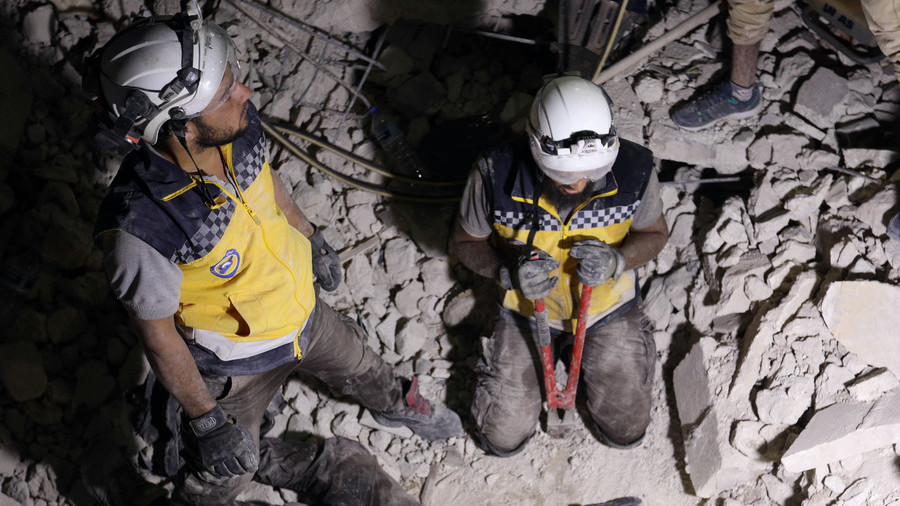
“Foreign
specialists” have arrived in Syria and may stage a chemical attack
using chlorine in “the next two days,” the Russian Defense
Ministry said. This will be filmed for international media to frame
Damascus forces.
Defense
Ministry Spokesman Major General Igor Konashenkov said the operation
is planned to unfold in the village of Kafr Zita in Syria’s
northwestern Hama Province in “the
next two days.”
Konashenkov
said that “English-speaking
specialists” are
already in place to use “poisonous
agents.” While
a group of residents from the north has been transported to Kafr Zita
and is currently being prepared “to
take part in the staging of the attack” and
be filmed suffering from supposed “‘chemical
munitions’ and ‘barrel bombs’ launched by the Syrian government
forces.”
The
groups of residents will be used to assist “fake
rescuers from the White Helmets.” They
will be filmed apparently suffering from the effects of chemical
weapons and then be shown in “the
Middle Eastern and English-language media.”
The
defense ministry earlier warned that the US, UK, and France are
preparing to use the planned attack as a pretext for airstrikes
against Syria. The USS The Sullivans, an Arleigh Burke-class Aegis
guided missile destroyer, was already deployed to the Persian Gulf a
couple of days ago.
On
August 22, US National Security Adviser John Bolton stated that “if
the Syrian regime uses chemical weapons, we will respond very
strongly and they really ought to think about this a long time.”
Russian
Deputy Foreign Minister Sergey Ryabkov earlier warned that the US is
not finished looking for pretexts for regime change in Damascus.
In
April, the US, UK, and France unleashed a bombing campaign on Syria
in response to an alleged gas attack in Douma, which the West blamed
on Bashar Assad’s government. The operation started hours before a
team from the Organization for the Prohibition of Chemical Weapons
(OPCW) was due to reach the city.




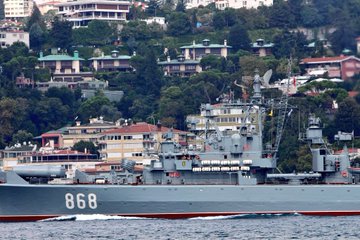
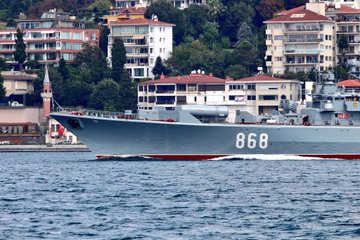
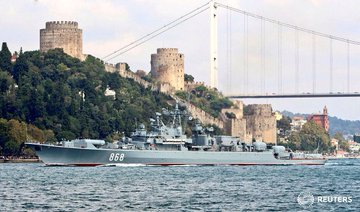

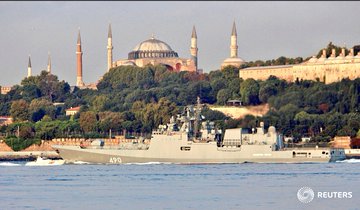
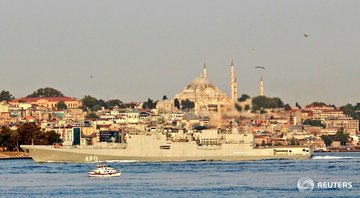


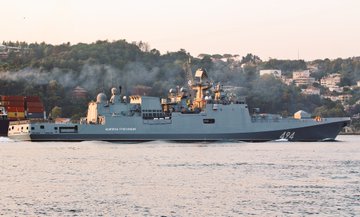
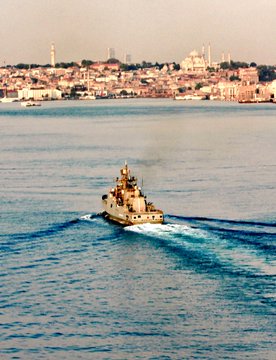
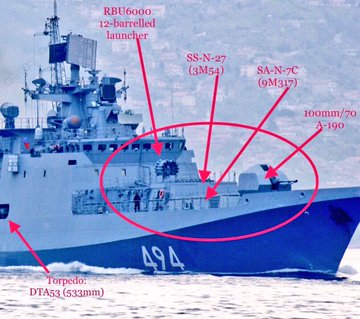
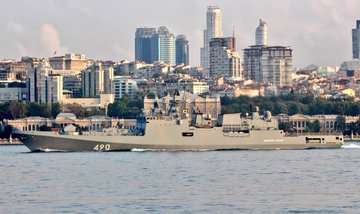
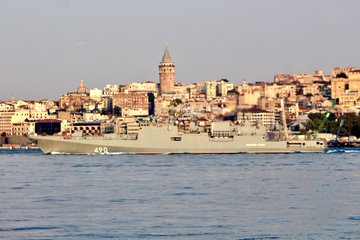
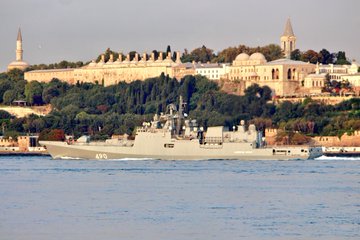
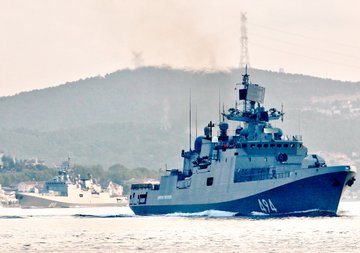
No comments:
Post a Comment
Note: only a member of this blog may post a comment.